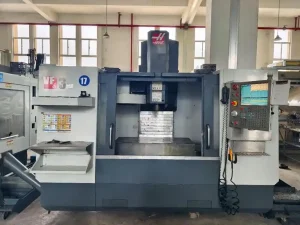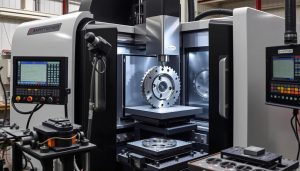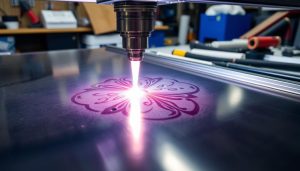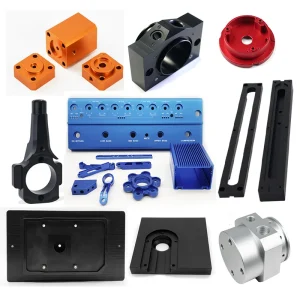Aluminum, a lightweight and versatile metal, has become an integral part of our modern world. From the sleek designs of smartphones to the sturdy frames of aircraft, this remarkable material has found its way into countless industries, revolutionizing the way we live, work, and travel. In this comprehensive guide, we’ll explore the different types of aluminum alloys and their diverse applications, empowering you to make informed decisions when selecting the right aluminum for your next project.
Aluminum’s unique properties, including its exceptional strength-to-weight ratio, corrosion resistance, and recyclability, make it an increasingly popular choice among manufacturers and designers. With a wide range of alloy compositions, each type of aluminum offers distinct advantages, catering to the specific needs of various industries. Understanding these differences is crucial in ensuring that the chosen aluminum alloy meets the performance and durability requirements of your application.
Key Takeaways
- Aluminum is a lightweight, versatile, and corrosion-resistant metal with a wide range of applications.
- Different aluminum alloys offer unique properties and are tailored to specific industries and requirements.
- Selecting the right aluminum alloy is essential for ensuring the optimal performance and durability of your project.
- Aluminum’s recyclability and sustainability make it an increasingly appealing choice for eco-conscious industries.
- Understanding the various types of aluminum and their applications can help you make informed decisions when sourcing this remarkable material.
Different Types of Aluminum Alloys
Aluminum is a versatile material that can be alloyed with various elements to create distinct types of alloys, each with its own unique properties and applications. Let’s explore some of the most common aluminum alloy grades and their characteristics.
1100 Aluminum
1100 aluminum is a pure, commercially pure grade of aluminum with a minimum purity of 99.0%. It is known for its excellent corrosion resistance, good electrical and thermal conductivity, and easy machinability. 1100 aluminum is commonly used in applications such as electrical components, kitchen utensils, and food packaging.
3003 Aluminum
3003 aluminum is an alloy that contains a small amount of manganese, which increases its strength compared to pure aluminum. This alloy is widely used in the construction industry, particularly for roofing, siding, and other architectural applications. It also finds use in the manufacturing of heat exchangers, kitchen equipment, and various consumer products.
6061 Aluminum
6061 aluminum is a heat-treatable alloy that contains magnesium and silicon as its primary alloying elements. This combination of elements gives 6061 aluminum a higher strength-to-weight ratio, making it a popular choice for aerospace, automotive, and industrial applications, such as aircraft components, vehicle frames, and machinery parts.
7075 Aluminum
7075 aluminum is a high-strength alloy that contains zinc, magnesium, and copper as its main alloying elements. This unique composition results in exceptional strength, comparable to that of some steels, while maintaining a relatively low density. 7075 aluminum is widely used in the aerospace industry for structural components, as well as in the production of high-performance sports equipment and other specialized applications.
Each type of aluminum alloy offers distinct advantages, from corrosion resistance to enhanced strength-to-weight ratio, making them suitable for a wide range of industrial and consumer applications. Understanding the unique properties of these aluminum grades is crucial when selecting the appropriate material for a specific project or design.
Wrought vs. Cast Aluminum
When it comes to aluminum, there are two primary forms: wrought and cast. Each type offers distinct manufacturing processes and resulting mechanical properties, making them suitable for different applications. Understanding the differences between wrought and cast aluminum is crucial in selecting the right material for your needs.
Wrought Aluminum Properties
Wrought aluminum is produced through mechanical processes, such as rolling, forging, or extrusion. This manufacturing method results in a material with superior mechanical properties, including higher strength and durability. Wrought aluminum also exhibits better formability, allowing it to be shaped into complex aluminum forms and components. This makes wrought aluminum a popular choice for aerospace, automotive, and construction industries, where manufacturing processes and mechanical properties are crucial.
Cast Aluminum Characteristics
In contrast, cast aluminum is produced by pouring molten metal into a mold and allowing it to solidify. This manufacturing process results in a material with different mechanical properties, often with lower strength and durability compared to wrought aluminum. However, cast aluminum excels in its ability to be easily molded into intricate shapes, making it a suitable choice for aluminum forms with complex geometries, such as those found in automotive engine components and decorative architectural elements.
The selection between wrought and cast aluminum depends on the specific requirements of the application, balancing factors like strength, formability, and cost-effectiveness. By understanding the unique characteristics of each aluminum form, manufacturers can make informed decisions to optimize their manufacturing processes and produce high-quality, durable products.

Applications of Aluminum Alloys
Aluminum alloys have a wide range of applications across various industries, showcasing their versatility and technological advancements. From the aerospace and automotive sectors to construction and electronics, aluminum’s unique properties make it an indispensable material in numerous industry-specific uses.
Aerospace and Aircraft Components
In the aerospace industry, aluminum alloys are extensively used for manufacturing aircraft components due to their exceptional strength-to-weight ratio. Lightweight yet durable, aluminum is the material of choice for critical parts such as fuselages, wings, and structural beams, allowing aircraft to achieve greater fuel efficiency and performance.
Automotive Industry
Aluminum’s growing popularity in the automotive industry can be attributed to its superior strength, corrosion resistance, and ability to enhance fuel efficiency. Automakers utilize aluminum alloys for a variety of components, including engine blocks, transmission parts, and suspension systems, ensuring vehicle safety and longevity while reducing overall weight.
Construction and Architecture
The construction and architectural sectors have embraced aluminum products, leveraging their durability, corrosion resistance, and versatility. Aluminum is widely used for windows, doors, curtain walls, and structural supports, providing both aesthetic appeal and practical benefits in modern building design.
Electrical and Electronics Applications
Aluminum’s excellent thermal and electrical conductivity make it an ideal material for various electrical and electronic applications. From heat sinks and power cables to electronic enclosures and printed circuit boards, aluminum alloys play a crucial role in the reliable operation and protection of electronic devices and components.
The diverse applications of aluminum alloys across these industries showcase the material’s ability to meet the evolving needs of modern technology and infrastructure. As technological advancements continue to drive innovation, the use of aluminum products will likely expand, solidifying its position as an indispensable material in industry-specific uses.
| Industry | Aluminum Applications | Benefits |
|---|---|---|
| Aerospace | Aircraft components (fuselage, wings, beams) | Lightweight, high strength-to-weight ratio |
| Automotive | Engine blocks, transmission parts, suspension systems | Improved fuel efficiency, corrosion resistance |
| Construction | Windows, doors, curtain walls, structural supports | Durability, corrosion resistance, design flexibility |
| Electronics | Heat sinks, power cables, electronic enclosures | Excellent thermal and electrical conductivity |
Choosing the Right Type of Aluminum
When it comes to selecting the right type of aluminum for your project, there are several key factors to consider. The material selection process should be guided by the specific requirements of your project, such as strength, weight, corrosion resistance, and cost. By carefully evaluating these project requirements and the unique properties of different aluminum alloys, you can ensure that you choose the optimal material for your application.
One of the primary considerations in material selection is the required strength of the aluminum. Different alloys offer varying levels of tensile strength, yield strength, and hardness, making them suitable for different applications. For instance, if you require a lightweight yet strong material for an aerospace or automotive component, you might opt for the high-strength 7075 aluminum alloy. On the other hand, if cost is a critical factor, the more economical 1100 or 3003 alloys may be a better fit.
In addition to strength, project requirements such as corrosion resistance and electrical conductivity should also guide your aluminum selection. Certain alloys, like 6061, are known for their excellent corrosion resistance, making them ideal for outdoor or marine applications. Other alloys, such as 1100, have higher electrical conductivity, making them suitable for electrical and electronics applications.
When evaluating different aluminum specifications, it’s important to strike a balance between performance and budget. While the highest-grade alloys may offer superior properties, they also come with a higher cost. By understanding the trade-offs between cost and performance, you can make an informed decision that best aligns with the overall goals and constraints of your project.
| Aluminum Alloy | Tensile Strength (MPa) | Yield Strength (MPa) | Corrosion Resistance | Cost |
|---|---|---|---|---|
| 1100 | 90-110 | 34-45 | Good | Low |
| 3003 | 110-130 | 40-52 | Good | Low |
| 6061 | 310-345 | 275-310 | Excellent | Moderate |
| 7075 | 540-572 | 470-503 | Good | High |
By carefully evaluating the material selection, project requirements, and aluminum specifications, you can make an informed decision that optimizes performance, cost, and overall suitability for your specific application.

Why Choose Shixinproto for Your Aluminum Needs?
When it comes to aluminum products, Shixinproto stands out as a reliable and trusted supplier. With years of expertise in the industry, the company offers a wide range of high-quality aluminum alloys to cater to diverse applications. From aerospace and automotive to construction and electronics, Shixinproto’s extensive product portfolio ensures that you can find the perfect aluminum solution for your needs.
Shixinproto is committed to providing exceptional quality assurance. The company’s rigorous quality control measures and adherence to industry standards guarantee that each aluminum product meets the highest specifications. Whether you require standard aluminum alloys or custom solutions, Shixinproto’s team of experts is dedicated to understanding your requirements and delivering tailored solutions that exceed your expectations.
With a focus on innovation and customer satisfaction, Shixinproto continues to redefine the aluminum industry. As a leading aluminum supplier, the company’s commitment to excellence and customer service is unparalleled. Trust Shixinproto to be your partner in unlocking the full potential of aluminum for your business.





